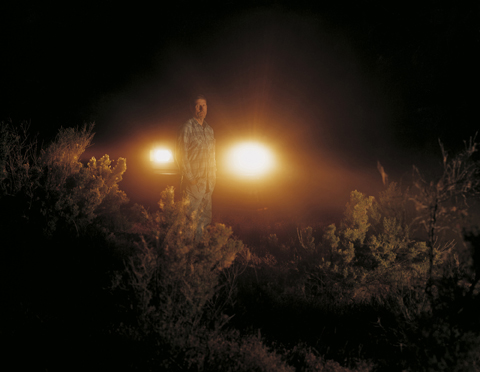Viewing Record 1 of 1 evidence
About the Photographer
Simon, Taryn
American, b. 1975
After photographing men and women for The New York Times Magazine who were illegitimately convicted, wrongfully imprisoned, eventually exonerated by DNA evidence, and ultimately freed, Taryn Simon was inspired to investigate the role of photography within the criminal justice system. She began to travel across the United States, interviewing and photographing individuals who served time in prison for violent crimes they did not commit. The Innocents (2003) questions photography’s function as a credible source for incrimination, and stresses the consequences of discounting photography’s limitations within the criminal justice system.
The individuals in The Innocents were most often convicted due to mistaken identity. When a victim or eyewitness identifies a suspected perpetrator, law enforcement officials rely on accurate visual memory. But through exposure to the process of composite sketches, photographs, mug shots, lineups, and the influence of police officers and prosecutors, the outcome of identifications and testimonies can be heavily shaped. Viewing photographs repeatedly can cause eyewitness memory to change, transforming innocent citizens into criminals.
In her photographs, Simon places the wrongfully convicted in locations that are significant to their story–the scene of the crime, arrest, misidentification, or alibi. Simon explains, “The scene of arrest marks the starting point of a reality that is based in fiction. The scene of the crime, for the wrongfully convicted, is at once arbitrary and crucial; a place that changed their lives forever, but to which they had never been. Photographing the wrongfully convicted in these environments brings to the surface the attenuated relationship between truth and fiction, and efficiency and injustice.â€
Taryn Simon was born in New York City in 1975. She studied photography at the Rhode Island School of Design and completed a BA in Art Semiotics from Brown University in 1997. In 2011 she was included in the 54th Venice Biennale. She has held solo exhibitions at the Museum of Modern Art, New York (2012); Tate Modern, London (2011); Neue Nationalgalerie, Berlin (2011); Whitney Museum of American Art, New York (2007); Kunst-Werke Institute of Contemporary Art, Berlin (2004); and P.S. 1 Contemporary Art Center, New York (2003). Her work is held in the collections of the Metropolitan Museum of Art, New York; Tate Modern, London; Whitney Museum, New York; Centre Pompidou, Paris; the High Museum, Atlanta; and the Los Angeles Museum of Contemporary Art, among others. Awards and fellowships include the Alfred Eisenstaedt Award in Photography (1999) and the Guggenheim Foundation Fellowship in Photography (2001). Simon lives and works in New York City, and has been a visiting artist at Yale University, Bard College, and Parsons School of Design.
